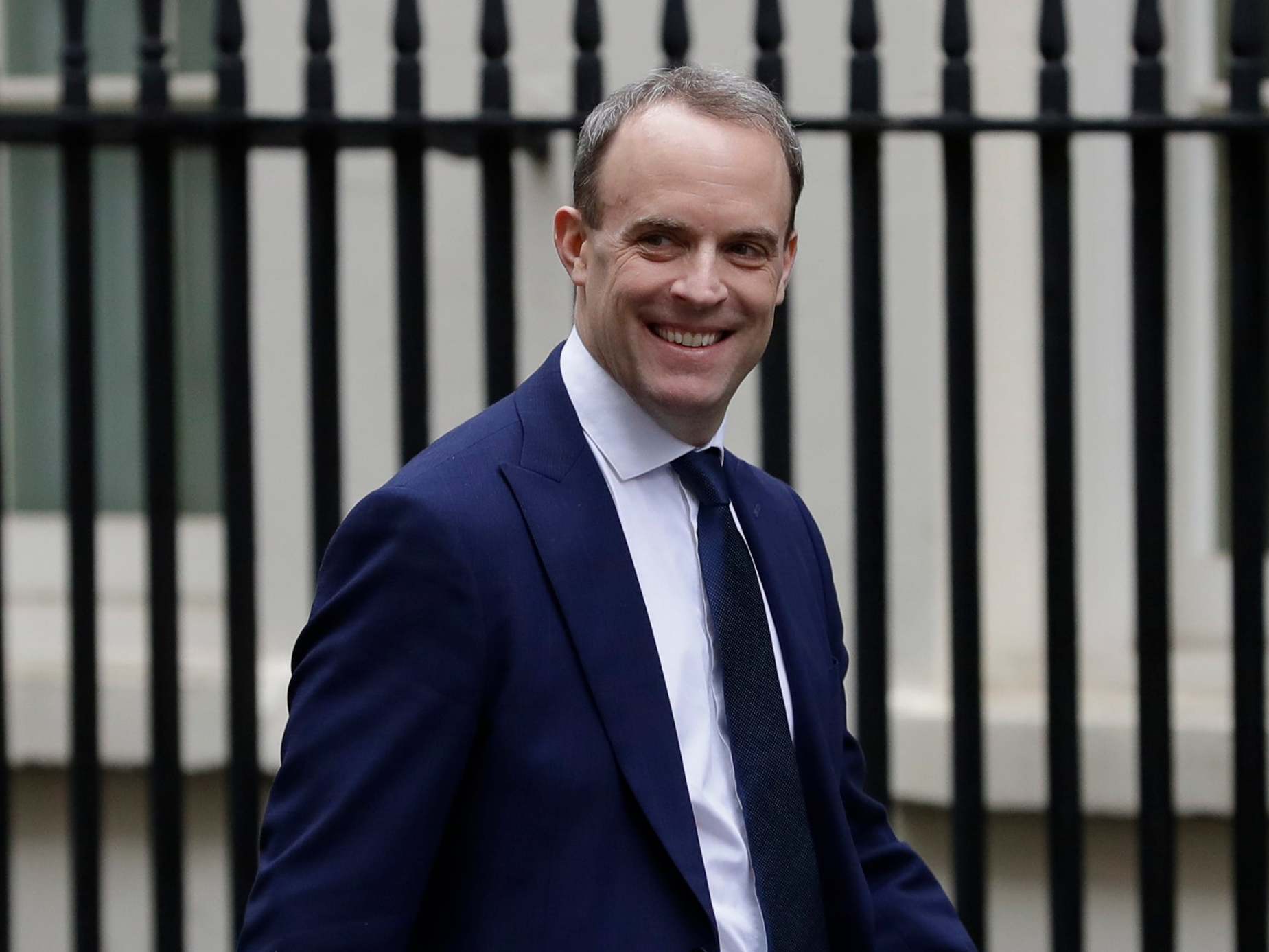Who will take over if the prime minister falls ill?
The succession within the cabinet is usually the preserve of constitutional trainspotters, writes John Rentoul


Dominic Raab, the foreign secretary, will deputise for Boris Johnson if he is incapacitated by the coronavirus, according to the prime minister’s official spokesperson.
Johnson was admitted to hospital on Sunday for tests after experiencing persistent symptoms of coronavirus ten days after testing positive for the virus.
If the virus prevents the prime minister from carrying out his duties, Raab will step in.
The prime minister’s official spokesperson was prompted to confirm the line of succession last week following a report in The Sunday Times that cabinet ministers were jockeying for position, with Michael Gove, the cabinet office minister, and Matt Hancock, the health secretary, alleged to be vying for seniority.
The newspaper said: “Some ministers are lobbying to see Gove take charge if Johnson is incapacitated with Covid-19 or if he takes paternity leave.”
Gove himself responded to the report, saying that Hancock was in charge of the coronavirus response; while journalists who asked who would stand in for the prime minister were told by No 10 that it would be Raab.
This confirms the formal hierarchy, which lists Raab, who is not just foreign secretary but first secretary of state, as the highest-ranking cabinet minister apart from the prime minister.
This is usually a matter of nerdy interest to constitutional trainspotters, and matters to the wider public only if the prime minister is out of the country and needs someone to take his place at Prime Minister’s Questions in the Commons. That has happened only once while Johnson has been prime minister, in October, when Raab took on Diane Abbott, who stood in for Jeremy Corbyn.
The title of first secretary of state was created in 1962 for Rab Butler, who was also deputy prime minister, so he already ranked second in the order of cabinet precedence. It was apparently given to grant him a salary and full membership of the cabinet, which the deputy prime minister title – created for Clement Attlee during the war – did not do on its own. Instead of changing the rules for deputy prime ministers, a new post was created.
The title was not used in the Seventies and Eighties, being restored for Michael Heseltine (who was also deputy prime minister) in 1995, and has been used off and on since.
If there is no deputy prime minister – another title that comes and goes, and there hasn’t been one since Nick Clegg in 2015 – the first secretary stands in for the prime minister if he is unavailable.
Join our commenting forum
Join thought-provoking conversations, follow other Independent readers and see their replies
0Comments